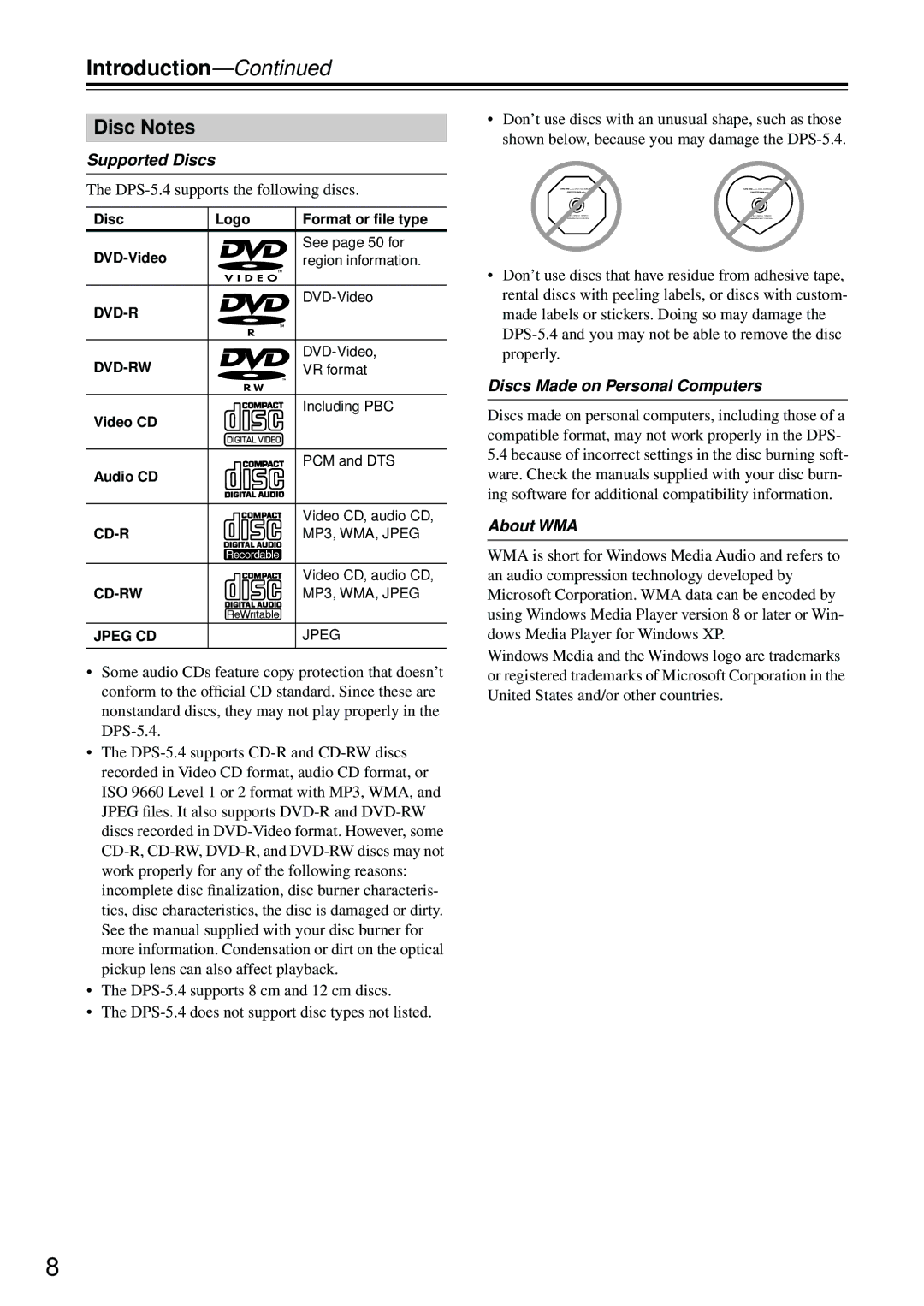
Introduction—Continued
Disc Notes
Supported Discs
The DPS-5.4 supports the following discs.
Disc | Logo | Format or file type |
| See page 50 for | |
| region information. | |
| ||
|
| |
| ||
| VR format | |
Video CD |
| Including PBC |
|
| |
Audio CD |
| PCM and DTS |
|
| |
|
| Video CD, audio CD, |
| MP3, WMA, JPEG | |
|
| Video CD, audio CD, |
| MP3, WMA, JPEG | |
JPEG CD |
| JPEG |
•Some audio CDs feature copy protection that doesn’t conform to the official CD standard. Since these are nonstandard discs, they may not play properly in the
•The
•The
•The
•Don’t use discs with an unusual shape, such as those shown below, because you may damage the
•Don’t use discs that have residue from adhesive tape, rental discs with peeling labels, or discs with custom- made labels or stickers. Doing so may damage the
Discs Made on Personal Computers
Discs made on personal computers, including those of a compatible format, may not work properly in the DPS-
5.4because of incorrect settings in the disc burning soft- ware. Check the manuals supplied with your disc burn- ing software for additional compatibility information.
About WMA
WMA is short for Windows Media Audio and refers to an audio compression technology developed by Microsoft Corporation. WMA data can be encoded by using Windows Media Player version 8 or later or Win- dows Media Player for Windows XP.
Windows Media and the Windows logo are trademarks or registered trademarks of Microsoft Corporation in the United States and/or other countries.
8
